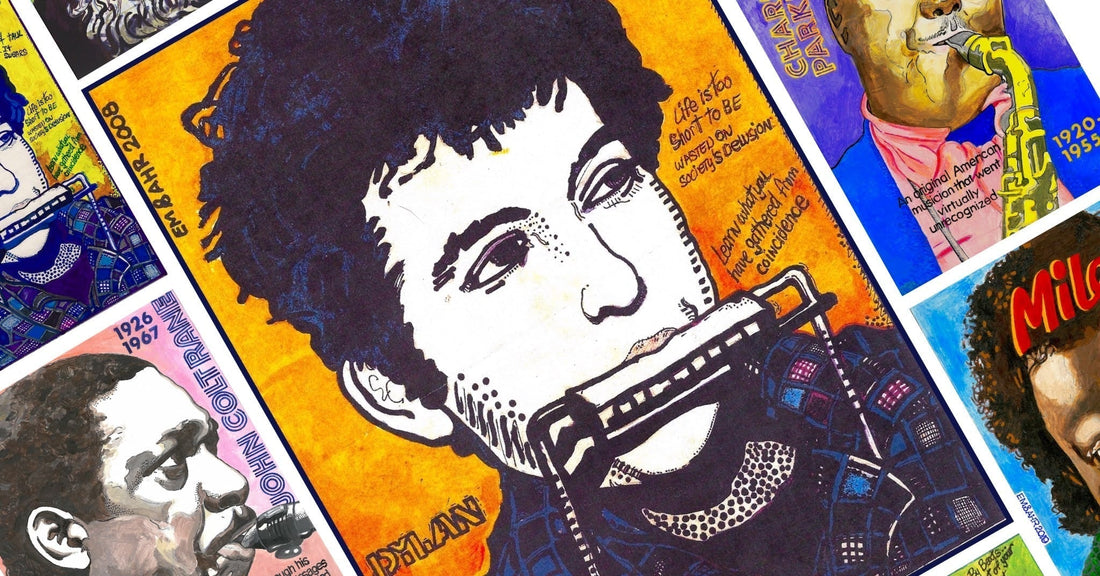
Bob Dylan: The Voice Who Changed a Generation
Share
Born Robert Allen Zimmerman on May 24, 1941, in the small town of Duluth, Minnesota, Bob Dylan’s story began far from the cultural spotlight he would later come to define. Raised in nearby Hibbing, Dylan grew up in a working-class Jewish family and found solace in music early on. As a teenager, he was drawn to the blues, early rock ’n’ roll, and especially the raw poetry of Woody Guthrie’s folk songs. Dylan would later say Guthrie’s music “spoke directly” to him, inspiring a lifelong mission: to make music that mattered.
By the late 1950s, he was playing in local rock bands and absorbing everything from country to jazz. But it wasn’t until he moved to New York City in 1961—adopting the name “Bob Dylan,” partly in homage to poet Dylan Thomas—that he began carving out his own voice. He arrived in Greenwich Village with little more than a guitar, a harmonica, and a vision.
The early 1960s were a time of cultural upheaval, and Dylan quickly became the voice of a restless generation. His early albums, including The Freewheelin’ Bob Dylan and The Times They Are A-Changin’, captured the anxieties and hopes of the civil rights and anti-war movements. With songs like “Blowin’ in the Wind” and “A Hard Rain’s A-Gonna Fall,” Dylan transformed folk music into something political, poetic, and deeply personal.
Yet Dylan never stayed in one place too long. In 1965, he famously "went electric" at the Newport Folk Festival, alienating purists but forging a revolutionary new path. Albums like Highway 61 Revisited and Blonde on Blonde showcased a wilder, rock-infused sound that redefined what popular music could be. “Like a Rolling Stone,” a six-minute epic of disillusionment and freedom, became a landmark track in music history—one Rolling Stone magazine would later name the greatest song of all time.
As Dylan evolved, so did his image. He became a symbol of resistance, but also remained fiercely independent. He rejected labels, dodged the media, and made sharp turns in his style—from gospel to country to surreal psychedelia. His lyrics were filled with vivid imagery, biblical references, and beat-inspired stream-of-consciousness poetry. He was mysterious, elusive, and unapologetically original.
Tragedy struck in 1966 when Dylan suffered a serious motorcycle accident. He retreated from public life, using the time to reconnect with his family and record more intimate, roots-based music. In the years that followed, Dylan would go through countless transformations—some critically praised, others misunderstood. But he always moved forward, never content to repeat himself.
Over the decades, Bob Dylan became more than a musician—he became a cultural institution. He won Grammy Awards, a Pulitzer Prize, and in 2016, he made history as the first musician awarded the Nobel Prize in Literature, honored “for having created new poetic expressions within the great American song tradition.”
Even into his 80s, Dylan continues to tour and release new music, defying age and expectation. His voice has changed, his style has shifted, but his spirit remains the same: honest, restless, and unshakably human.
Bob Dylan is not just the soundtrack to the past—he's the echo of conscience, the poet of the American soul, and a reminder that one voice, when true, can move the world.
